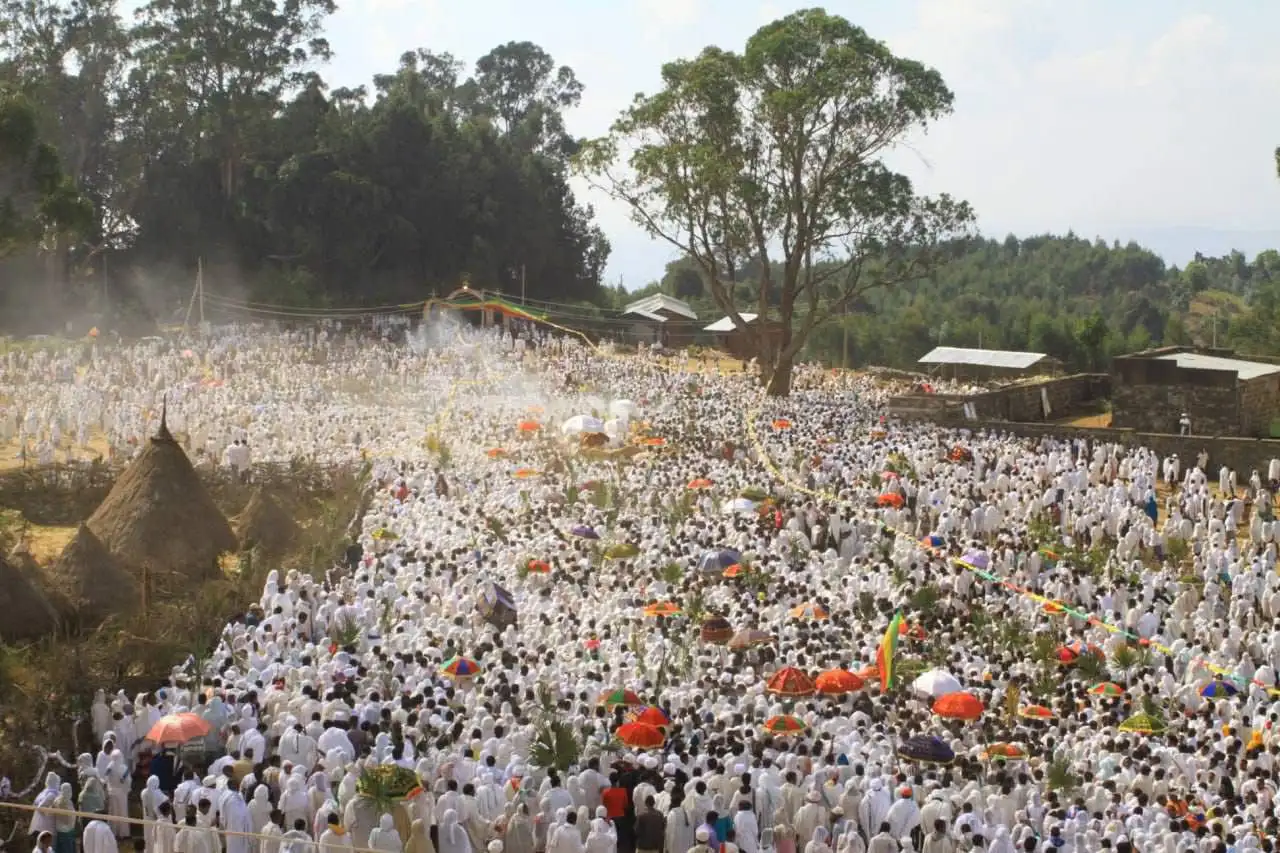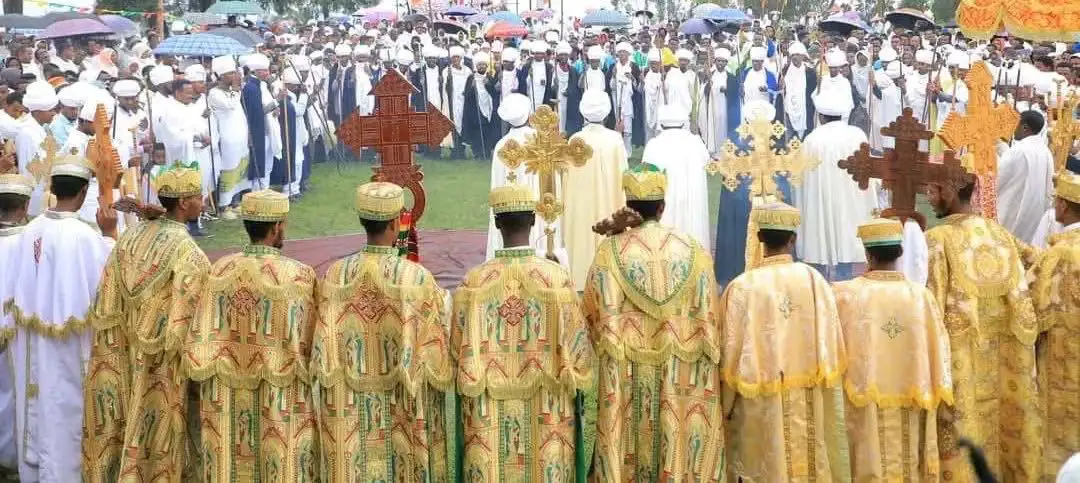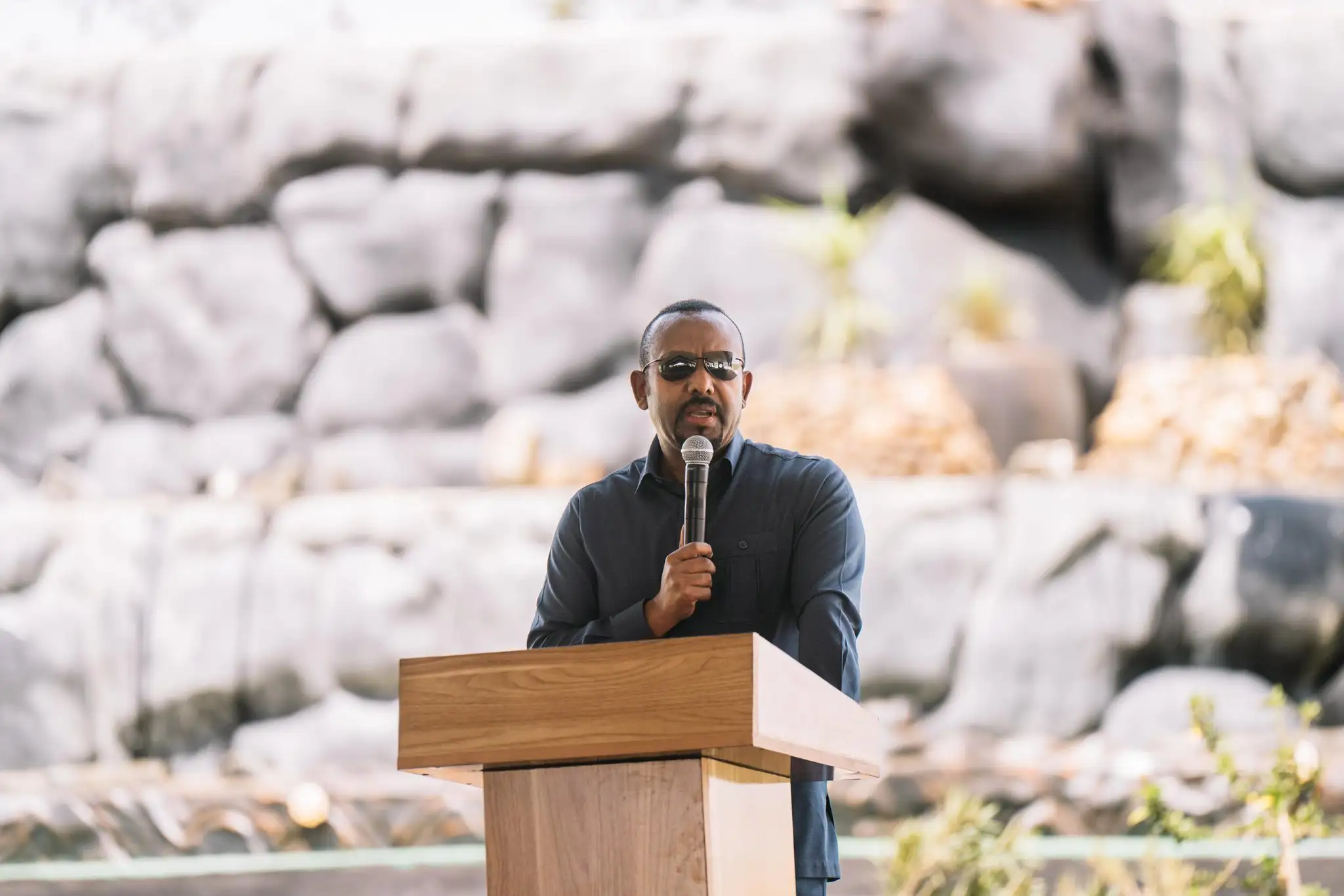The town of Debre Tabor in South Gondar, Amhara region, vibrated with vibrant celebrations today as Ethiopians marked the BUHE festival with traditional fervor and enthusiasm.
The colorful event brought together elders, religious figures, believers, and regional government officials.
BUHE, meaning light, brightness, and brilliance, commemorates the transfiguration of Jesus Christ, when his divine nature was revealed.
The celebration is characterized by the lighting of torches, symbolizing this divine revelation and the transition from darkness to light.
The festival marks the end of the dark winter season and the arrival of brighter days. As the saying goes, “If BUHE is there, there is no winter; if the rooster crows, there is no night," highlighting the sense of hope and renewal associated with the celebration. The term "BUHE" also refers to the special bread, or "Buko/Lit," and "Mulmul" baked for the occasion.
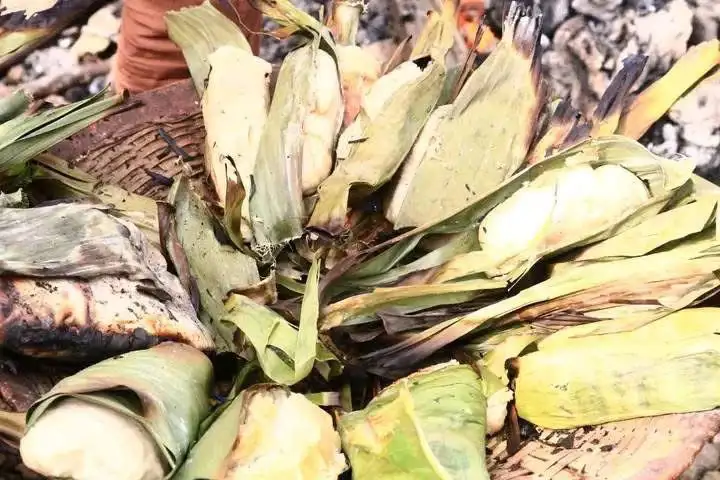
A unique element of Buhe celebrations involves the ritual use of whips, which holds dual symbolic significance. Firstly, it commemorates the crucifixion and death of Jesus Christ. Secondly, it represents the voice of God, the Father's witness, akin to the sound of thunder, reinforcing the divine aspects of the festival.
Torches hold central importance, symbolizing the revelation of Jesus Christ's divinity. The tradition also pays homage to shepherds who watched over their flocks at night and to parents who lit torches to search for their children. Furthermore, the torch signifies the role of believers as mentors and teachers, illuminating the path for others through their faith and actions.
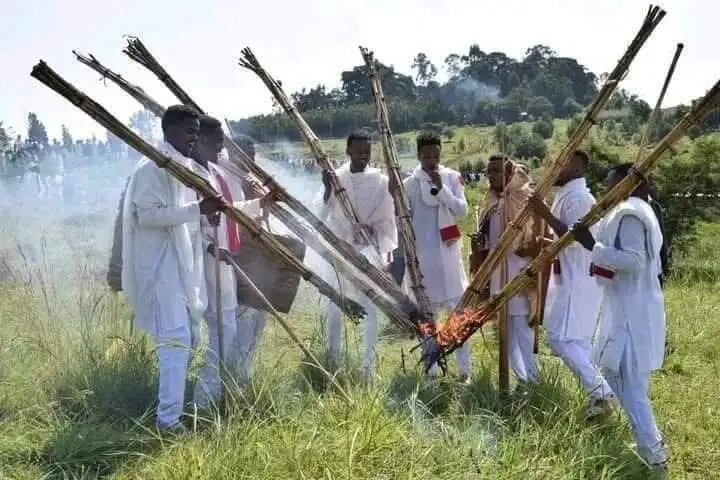
The giving of "Mulmul" bread is another key tradition.
According to religious leaders and fathers, children singing "BUHE" while going house to house are representative of the apostles delivering the "good news". The bread given to them, and to the elders who accompany them, reflects family, love, and care, as parents long ago baked bread to share with their children after searching for them with torches. Buhe thus serves as an important expression of community solidarity.
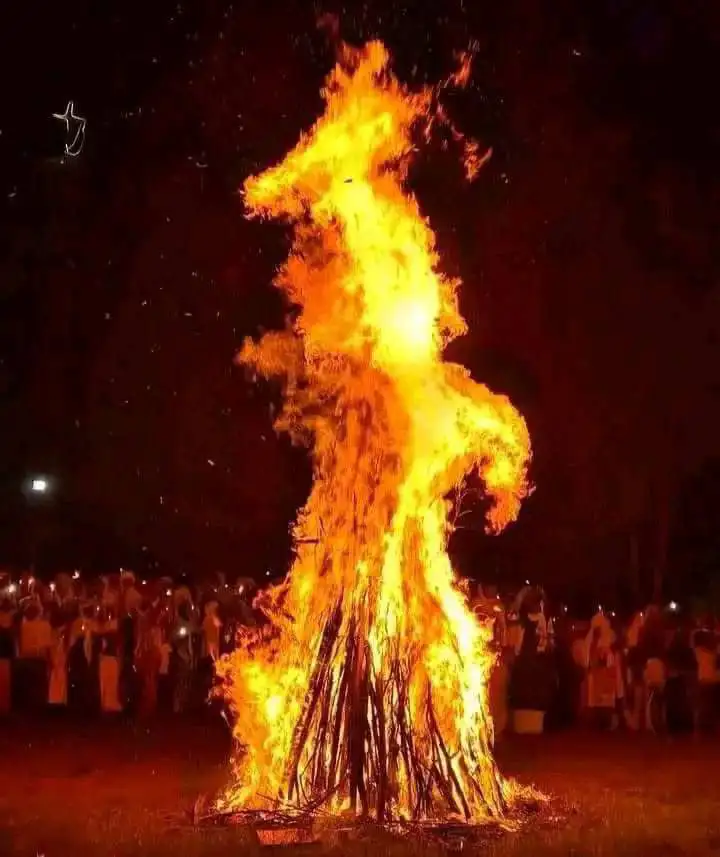
BUHE otherwise called Debre Tabor, celebrated on August 19th by Ethiopian Orthodox Tewahedo Churches across Ethiopia, marks the Transfiguration of Jesus on Mount Tabor.
Rooted in faith and tradition, this feast day symbolizes divine revelation and is a significant event in the Orthodox calendar, reflecting deeply held spiritual beliefs.
